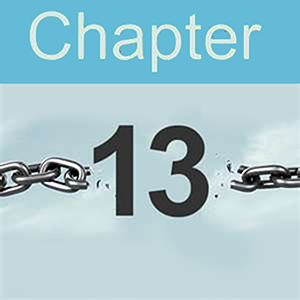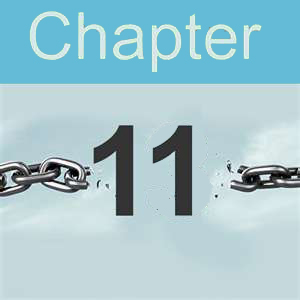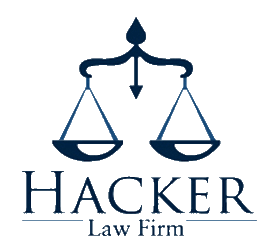Compassion And Experience for the most challenging divorces.
Experienced San Antonio Chapter 7 Bankruptcy Lawyer
Generally, a Chapter 7 bankruptcy is a liquidation bankruptcy or a legal way to wipe out your debts and start fresh. You will be able to wipe out most of your unsecured debts, such as credit cards, personal loans, repossessions, medical bills, etc. Most people who file Chapter 7 bankruptcy are able to keep their homes and cars as long as they are current and remain current on their payments on those items. However, there are income limitations on who may be able to file a Chapter 7 bankruptcy.
A Chapter 7 bankruptcy stays on your credit report for 10 years from the date of filing, unlike a Chapter 13 bankruptcy, which stays on your credit report for 7 years from the date of filing. A bankruptcy might make credit less available and/or terms less favorable, although having too much debt can have the same effect.
Steve Hacker is a San Antonio Chapter 7 bankruptcy lawyer who has helped San Antonians since 2005 with their Chapter 7 fillings. Learn whether you qualify for a Chapter 7 bankruptcy – or whether bankruptcy is the right answer for you. For a free initial consultation and evaluation of your situation, call us today at 210-740-6777 or fill out our contact us form.
Why choose an experienced San Antonio Chapter 7 Bankruptcy Lawyer
Bankruptcy is an extremely complex and specialized area of law. This is why it is essential that you choose an attorney who is thoroughly familiar with all aspects of Chapter 7 and Chapter 13 bankruptcy.
Without the right attorney, your bankruptcy may be significantly delayed or dismissed — either of these circumstances will almost certainly put your assets at further risk.
Chapter 7 Bankruptcy Information

Keeping your House
As long as you are current, or can quickly become current, on your house payments, you should be able to file Chapter 7 bankruptcy and keep your house.
How to Qualify for a Chapter 7 Bankruptcy
In order to qualify for a Chapter 7 liquidation bankruptcy, you must meet the Means Test. Although this sounds complicated, it really just means that you must fall below the median income level for your area within Texas based on the number of people in your household. The median income level for Texas is determined by the Census and the IRS. Your household income is determined by averaging your last six months of income. If your household income is above the median income, you may still qualify for Chapter 7 bankruptcy if your disposable income is below the level considered abusive by the court. In order to determine these amounts, you are required to provide our office with pay stubs for you and your spouse for the last six months in addition to other out-of-pocket expenses not deducted from your paycheck, such as child care, charitable contributions, etc. The Means Test is one of the major changes of the 2005 bankruptcy reform law.
Getting Rid of Debt in Chapter 7 Bankruptcy
If you qualify for a Chapter 7 bankruptcy through the Means Test, you must be either: 1) current on your house and/or car payments or 2) willing to surrender your house and/or car to the mortgage company or car loan company if you are behind on either of these payments. Generally, people file Chapter 7 bankruptcies to start fresh and wipe out their unsecured debts such as credit cards, medical bills, previous foreclosures, previous repossessions, etc. After your Chapter 7 bankruptcy has been filed with the bankruptcy court and while it is pending, your creditors will no longer be allowed to call or harass you regarding your debt. Instead, they must contact our office if they have questions – this is required by law. After a few months, assuming all proper steps have been followed, you will receive a discharge of your debts (meaning your debts have been successfully wiped out) and you will be able to begin a fresh financial life.

Creditor Harassment
Once your bankruptcy is filed with the bankruptcy court, and automatic stay typically goes into effect stopping creditors from contacting you and proceeding with foreclosure, repossession and other legal actions including enforcement of the lien. Debts you incur after filing bankruptcy are not included in the automatic stay and those creditors have the right to contact you and take collection actions against you.

Medical Debt
Medical debt can be eliminated in bankruptcy. If you are married and the medical debt was incurred while you are married, both you and your spouse may be responsible for the debt. As a result, if only one spouse files bankruptcy, the other nonfiling spouse would still be responsible for the medical debt. It is also important to determine whether the medical provider has obtained a judgment lien against you. If they have obtained a judgment lien and you own a house, additional paperwork may need to be filed to void or eliminate the lien. It is important you discussed this with your attorney.
What Chapter 7 Bankruptcy Can’t Do
It is important to note that there are some debts that a Chapter 7 bankruptcy cannot wipe out. These debts include student loans, taxes, alimony, child support, and damages related to criminal restitution such as damages from drunk driving. If you owe any of these debts and file a Chapter 7 to eliminate your unsecured debts such as credit cards and medical bills, you will still owe the student loans, taxes, alimony, child support, and criminal restitution debts even after you receive a discharge from bankruptcy.
As you can see, Chapter 7 bankruptcy law is complicated and, for most people, often confusing. Please contact Hacker Law Firm today or use the free evaluation form so that the Hacker Law Firm can guide you through the bankruptcy process.
Life After Bankruptcy
Once you complete your bankruptcy and you have received a discharge of debts and final decree, it is time to reestablish your credit. If you kept a house or car and reaffirmed that debt in your bankruptcy, you will immediately start rebuilding your credit with timely payments to your mortgage company(ies) and finance company. If you surrendered your house and/or car in your bankruptcy and you no longer have any secured debt payments, Hacker Law Firm suggests you obtain a credit card to help reestablish your credit. Obviously, the idea is to only charge items on the credit card you can payoff each month. Some credit agencies will tell you to pay all but $5 on the account so that you have a small balance each month. Obviously, Hacker Law Firm is not suggesting that you start accumulating debt after filing your bankruptcy, but obtaining a credit card is a great way to reestablish your credit.

Credit Rating
It is important to differentiate between your credit score and your ability to obtain credit. Your credit score is a number the credit reporting agencies assigned to your credit. Your ability to obtain credit is based on your ability to make payments in the future and looks at your income and your debts. If you debts exceed your ability to make payments, you may be unable to obtain credit even if you have consistently paid your debts on a timely basis and have a good credit score. Filing bankruptcy may eliminate many of your debts and will improve your ability to obtain credit in the future. However your credit scores will suffer initially after filing bankruptcy.
solutions for families and individuals. Hacker Law Firm is here to help
CHAPTER 13 BANKRUPTCY.
Generally, a Chapter 13 bankruptcy is a reorganization plan bankruptcy, or a legal way to pay back a portion or all of the debts that you owe. In Chapter 13 bankruptcy, you are usually able to keep your house and/or car. The most common reason for filing a Chapter 13 bankruptcy is to allow you to catch up on your house and/or car payments and stop a foreclosure or repossession. In a Chapter 13 bankruptcy, your secured debts, including the amount you are behind on your house, your mortgage payment(s) and the amount owed on your car, and a portion of your unsecured debts including credit cards and medical bills can be repaid over a 3 to 5 year time period sometimes at a reduced interest rate.

CHAPTER 11 BANKRUPTCY.
Generally, a Chapter 11 bankruptcy is a form of bankruptcy that specific ally focuses upon reorganization. Although it is similar to chapter 13 bankruptcy, the primary difference is that there is an absence of limitations in regard to how much money can be owed by the debtor. Originally intended only for large corporations, it is now possible for individuals to file this form of bankruptcy as well. It does not matter if the business is a sole proprietorship or a corporation, as it can be used by either for reorganization purposes.

Hacker Law Firm knows Texas Divorce and Family Law


